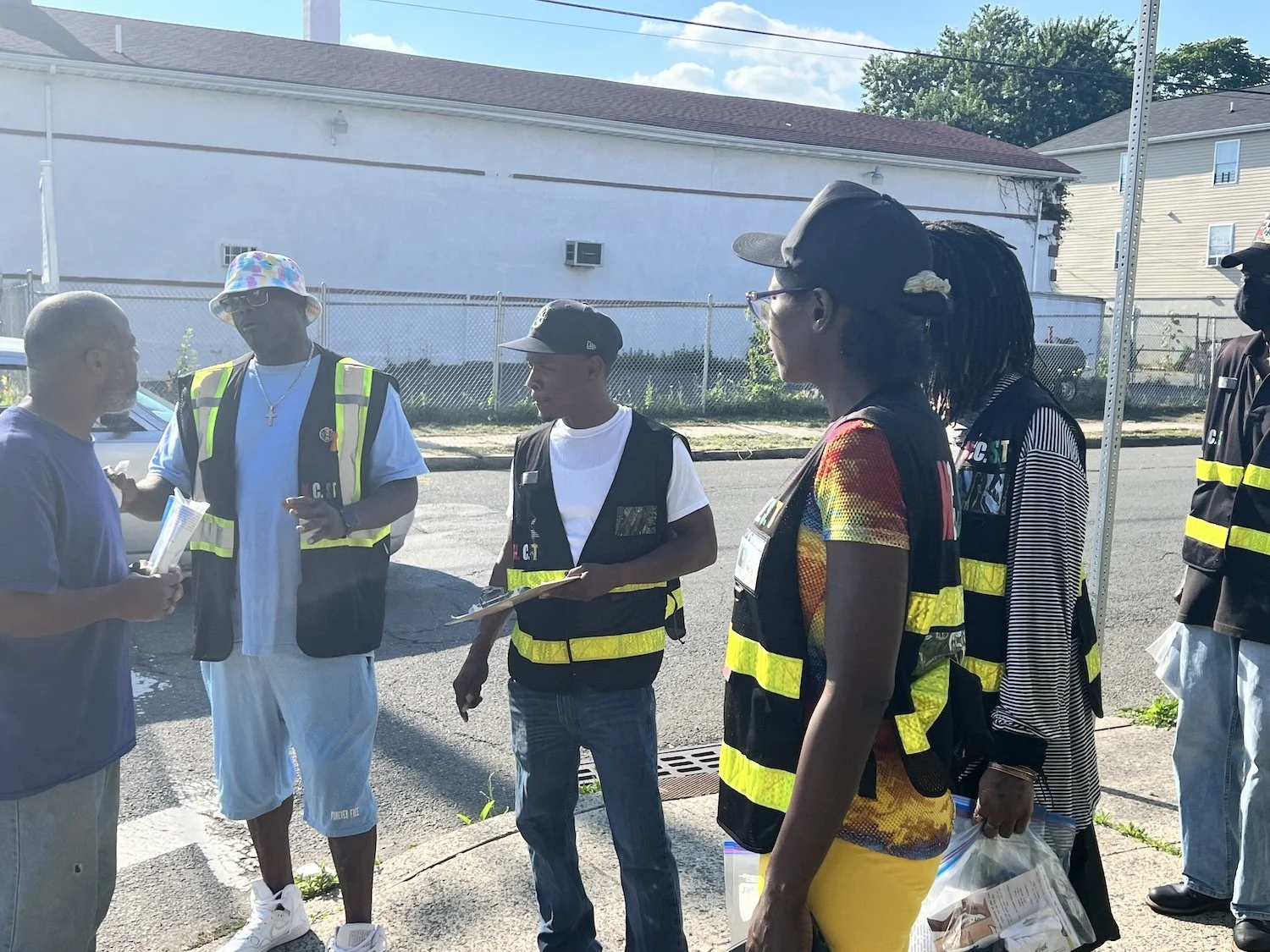Man Bites Dog? Not Quite. But Koch Support for Criminal Justice Reform is Pretty Interesting
/kittirat roekburi/shutterstock
If you’re an avid reader of Inside Philanthropy, you have no doubt read about various criminal justice research grants and reform initiatives funded by the Charles Koch Foundation.
Most recently, Stand Together, a Koch-backed nonprofit, announced a package of grants earlier this year that included $1.25 million to two organizations that work with released prisoners, helping to ease their reintegration into society. In 2018, the Charles Koch Foundation announced a five-year grant of up to $6.5 million to establish the Academy for Justice at Arizona State University’s (ASU) law school. The center will undertake criminal justice research in such reform areas as mass incarceration, racial profiling, wrongful convictions, and police use of force.
“Wait a minute,” you might be thinking. “The Kochs are funding all this? The billionaires behind the Tea Party movement? The family who runs the most powerful right-wing donor network in American history—those Kochs?”
Yep, same ones. The Charles Koch Foundation supports scholarly research in multiple areas, including politics and economics, economic liberty, foreign policy, entrepreneurship and criminal justice reform. Of its work in the latter arena, the funder’s website states, “Our grants seek to inform efforts to reduce overcriminalization and government overreach, as well as recidivism, and to remove barriers that prevent former offenders from achieving successful lives.”
Looking at this funding and the activities supported, you might wonder if the billionaire industrialist has discovered his inner liberal. Nope, that’s not it. In fact, Koch’s grantmaking here reflects his longtime libertarian beliefs and his consistent focus on checking the power of the state—whatever form it may take. (Koch grants have also been flowing lately to challenge what libertarians see as an overly expansive U.S. global foreign policy and national security apparatus.)
That said, we’ve also noted in recent years that Koch philanthropy has taken a gentler turn, with more focus on issues that affect vulnerable communities. That shift has coincided with a broader effort to soften the Koch brand after intense criticism of the Koch brothers for their political activities—criticism that the family feared would hurt Koch Industries, the nation’s second-largest private company. The emergence of Stand Together—which committed $30 million last month alone to anti-poverty groups—is one prominent sign of this shift in emphasis. Stepped up support for criminal justice reform is another.
That work has won praise from even the American Civil Liberties Union (ACLU) and former President Obama. In a 2015 speech to the NAACP, Obama praised the Kochs’ work on prison sentencing reform, even chastising the audience members who booed at mention of the Kochs.
“You have to give them credit,” Obama insisted. “You’ve got to call it like you see it.”
Last year’s $6.5 million award to ASU’s Sandra Day O’Connor School of Law is among the biggest moves yet by the Koch Foundation in this area—and reflects its keen interest in backing new research. The Academy for Justice funded by the grant builds upon a 2017 ASU report “Reforming Criminal Justice.” The multivolume publication addressed multiple reform topics, including wrongful convictions, mass incarceration, racial profiling, legal defense for the indigent, mandatory minimum sentences, and police use of force—all issues near and dear to many progressives.
The Koch-funded Academy for Justice will build upon this report by producing additional research to inform policy efforts at the state and national levels. Erik Luna, director and a professor of law at ASU, noted that academics have long been underutilized in criminal justice reform. The new center hopes to change that by making sure the best research is disseminated to policymakers and to the public.
But this gift is only one example of the Kochs’ criminal justice reform funding. In 2017, the funder awarded up to $4.5 million over five years to Ohio State University’s Moritz College of Law to establish the Drug Enforcement and Policy Center (DEPC). As Ohio joins the list of states with a medical marijuana program and grapples with ways to deal with the opioid crisis gripping many states, the DEPC will conduct research on drug policy impacts on families, drug use and the economy, as well as advocate for possible reforms related to drug policies and enforcement.
The so-called “War on Drugs,” which was aggressively stepped up under the Reagan administration in the 1980s, has been identified by some legal scholars and policy researchers as a major driver in the nation’s high incarceration rate. Koch, despite his staunch support for many Republican and conservative causes, opposes the Trump administration’s anti-marijuana stance.
Another Koch gift in 2017 involved a $2.2 million award to the Quattrone Center for the Fair Administration of Justice at the University of Pennsylvania law school. Like the ASU and OSU grants discussed here, the Quattrone Center will focus on new research aimed at reforms in the criminal justice system.
Still another justice research grant involved $3.5 million that the Koch Foundation awarded in 2016 to the Dedman School of Law at Southern Methodist University in Dallas, Texas. The Koch grant, coupled with a grant from the Deason Foundation, created the Deason Family Criminal Justice Reform Center. Legal scholars at the new center conduct research on causes and consequences of wrongful convictions and mass incarceration, as well as issues surrounding fair treatment of individuals in all stages of the criminal justice process.
The grants awarded to Penn, Ohio State, SMU and Arizona State reveal a common thread. It is clear that the Kochs are interested in broad reforms to the nation’s criminal justice system and believe that empirical, data-driven research is an important tool in driving such reforms.
The Koch Foundation is hardly alone in the libertarian motives it brings to criminal justice reform work. The Cato Institute, a longtime recipient of Koch funding, has a policy research and advocacy program that seeks to check what it sees as abuse of power by law enforcement authorities. Long before excessive police violence became a major cause of progressive activists, Cato was bringing attention to this issue through its work on police accountability.
Charles Koch hasn’t just brought new grantmaking resources to the criminal justice reform field, he’s also brought major political muscle as a top power broker in Republican circles. Koch advocacy efforts on criminal justice reform achieved a major victory in the 2018 passage of the First Step Act. Passed by Congress and signed into law by President Trump in the closing weeks of the year, First Step calls for easing mandatory minimum sentencing laws and taking additional measures to reduce some inmates’ time behind bars. In addition, the law calls for greater steps to improve offenders’ chances for success after release from prison.
Vikrant Reddy, a senior fellow at the Charles Koch Institute, called First Step an important move toward removing barriers to redemption for federal inmates who demonstrate commitment to turning around their lives. The next step, according to Reddy, is for companies to create opportunities for released individuals who have earned a second chance. Research by the Koch Institute and the Society for Human Resource Management has found that managers and human resource professionals are open to working with and hiring individuals with criminal records, but that potential legal liability poses a barrier.
Some see darker motives behind Koch’s grantmaking activities. The Nation, a leading progressive journal of opinion, warned that the enthusiasm of Koch and like-minded philanthropists for criminal justice reform may conceal an agenda aimed at privatizing the country’s jails and prisons, rendering them less accountable. In a similar vein, some critics claim that Koch’s criminal justice reform advocacy has less to do with a more equitable justice system and more to do with softening penalties for corporate wrongdoing. Still others stress that these efforts by Koch, coupled with multimillion-dollar gifts to the United Negro College Fund and the Thurgood Marshall College Fund, are part of an effort to burnish a damaged Koch brand.
Whatever one may think of Charles Koch’s motives, his foundation is putting significant dollars into research and policy advocacy efforts, and more investments are likely in the future from a donor worth more than $40 billion.
Of course, Koch is only one voice in a philanthropic chorus advocating changes in the nation’s justice system. Other funders, such as Arnold Ventures (formerly the Laura and John Arnold Foundation), the MacArthur Foundation, the Open Philanthropy Project, and the Art For Justice Fund, have given generously to projects aimed at ending mass incarceration. Passage of the First Step Act was just that: a first step. We will be watching for new developments in this area and whether they translate to additional policy changes and reforms.







































